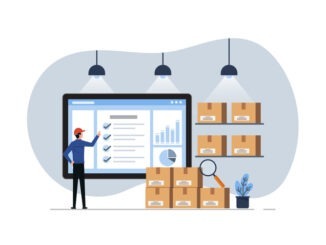![]()
With many employees using personal devices at work, small businesses must prioritise data security by implementing strict access controls and regularly monitoring access to sensitive information
CREDIT: This is an edited version of an article that originally appeared on SME Today
It is estimated that more than 90% of hybrid and remote workers use personal devices for work daily. While this flexibility benefits employees, it also presents significant security challenges for businesses. As workers access company resources from smartphones, laptops and other personal devices, the risk of cyberattacks and data breaches grows exponentially.
In fact, over half of UK businesses reported experiencing some form of cybersecurity incident or attack in the past year.
For businesses, this highlights the need for robust cybersecurity policies, especially in hybrid and remote work environments, where personal devices are frequently used for work-related tasks. It is essential to implement clear security protocols, conduct employee training and use secure connections to minimise the risks posed by personal devices accessing corporate systems.
Lost or stolen devices
Lost or stolen devices pose one of the biggest threats to BYOD (Bring Your Own Device) security, with 40% of data breaches linked to such incidents. When a device falls into the wrong hands, sensitive company data, including personal, financial and internal information, can be easily accessed and exploited.
To mitigate this risk, small businesses should implement several key security measures:
Device Encryption: Ensure all devices used for work purposes are encrypted, so data remains unreadable without the proper authorisation.
Remote Wipe Capabilities: Set up systems that allow you to remotely wipe a device’s data if it’s lost or stolen, preventing unauthorised access to company information.
Secure Password Policies: Encourage employees to use strong, unique passwords and enable multi-factor authentication to protect devices and sensitive data.
Employee Training: Educate employees on the risks of lost or stolen devices and how to handle them, including reporting incidents promptly.
Unsecured Networks
When employees connect to public Wi-Fi networks, such as those in cafes or hotels, the risk of cyberattacks increases. Public networks are often not secure, making it easy for hackers to intercept data being transmitted between personal devices and company systems. Sensitive business information could be exposed to attackers, compromising security.
To mitigate these risks, small businesses should implement the following measures:
Use VPNs (Virtual Private Networks): Encourage employees to use a VPN whenever connecting to public Wi-Fi. A VPN creates a secure tunnel for data transmission, protecting information from being intercepted by attackers.
Employee Education: Train employees to be cautious about connecting to public networks and inform them about the dangers of unsecured Wi-Fi. Stress the importance of always using a VPN when accessing business systems remotely.
Restrict Access on Public Networks: Limit access to critical company systems when employees are using unsecured networks. Implement policies that prevent certain high-risk activities on public Wi-Fi, such as accessing sensitive financial data.
Access Control and Monitoring
Implementing strong access control and monitoring measures is essential for protecting sensitive business data. Without proper controls, unauthorised individuals may gain access to critical information, increasing the risk of data breaches.
To mitigate these risks, small businesses should adopt the following strategies:
Strict Access Control: Ensure that only authorised personnel have access to sensitive data by using role-based access controls (RBAC). Limit access to data based on job functions and regularly review permissions to ensure they remain appropriate.
Regular Access Audits: Conduct periodic audits of access logs to track who is accessing sensitive business information and identify any unauthorised access attempts. This can help detect potential security breaches early and address issues before they escalate.
Monitor for Suspicious Activity: Implement automated systems that monitor access logs for unusual behaviour, such as multiple failed logins attempts or access outside of normal working hours. This allows for quick identification of potential security threats and swift response.
By implementing robust access control measures, conducting regular audits and monitoring access logs for suspicious activities, small businesses can greatly reduce the risk of data breaches. These strategies not only protect sensitive information but also help ensure compliance with data protection regulations. Taking proactive steps today to safeguard your business’s data will pay off in securing both your company’s reputation and its future growth.


Be the first to comment